A HEART FOR SCIENCE
IMPROVEMENT TODAY FOR A HEALTHIER FUTURE TOMORROW

Supported by

IMPROVEMENT TODAY FOR A HEALTHIER FUTURE TOMORROW

Supported by
The “cardiovascular research” laboratory was first founded by Prof. Thomas F. Lüscher in the early nineties, at the University & University Hospital of Basel in Switzerland. In those days, Prof. Lüscher had just returned from an intensive training period in cardiovascular research at the Mayo Clinic and Mayo Foundation in Rochester, Mn., USA, under the supervision of Prof. Paul M. Vanhoutte.
Soon after becoming the Director of the cardiovascular research laboratory, Prof. Lüscher realised that the financial support obtained by the University was not adequate to sustain the growing costs of research; thus, in 1994 he established the “Foundation for Cardiovascular Research” with the goal of promoting cardiovascular research in Switzerland and the career of young talented scientists.
In 1993, the laboratory of cardiovascular research moved from the University of Basel to the University of Bern where the research activities intensified, and the reputation of the research laboratory begun reaching outside the Swiss borders. Indeed, at this stage the number of scientific citations achieved by the laboratory already exceeded 1’000.
In 1996, the – by then well established – cardiovascular research laboratory moved to the University of Zurich where Prof. Lüscher became Director of Cardiology. Here, the laboratory was setup at the Institute of Physiology situated in the University Campus of Irchel. During this phase, the laboratory grew significantly and by 2002 it counted over 30 people from several countries worldwide. During these years, the laboratory of cardiovascular research became an internationally recognised reference institution in the field of cardiovascular research and accordingly, was awarded several prestigious international research grants and awards (see pages 14 –15) which were essential to increase further the scientific production and offer to many of its members diverse career opportunities. Indeed, numerous members of the laboratory went on to becoming Professors in prominent Universities across the globe from Japan to India, United States as well as Europe and Switzerland (see pages 16 –17).
In 2014, the laboratory of cardiovascular research made an important leap forward by moving out of the Institute of Physiology and becoming an independent research center of the University of Zurich named “Center for Molecular Cardiology” (CMC). The CMC was established at the newly built University of Zurich’s campus in Schlieren and during this phase, Prof. Giovanni G. Camici took over the directorship of the center with Prof. Lüscher as Chairman. Here the CMC quickly established itself as a “state of the art” research facility with modern equipment for molecular, cellular as well as cardiovascular translational research.
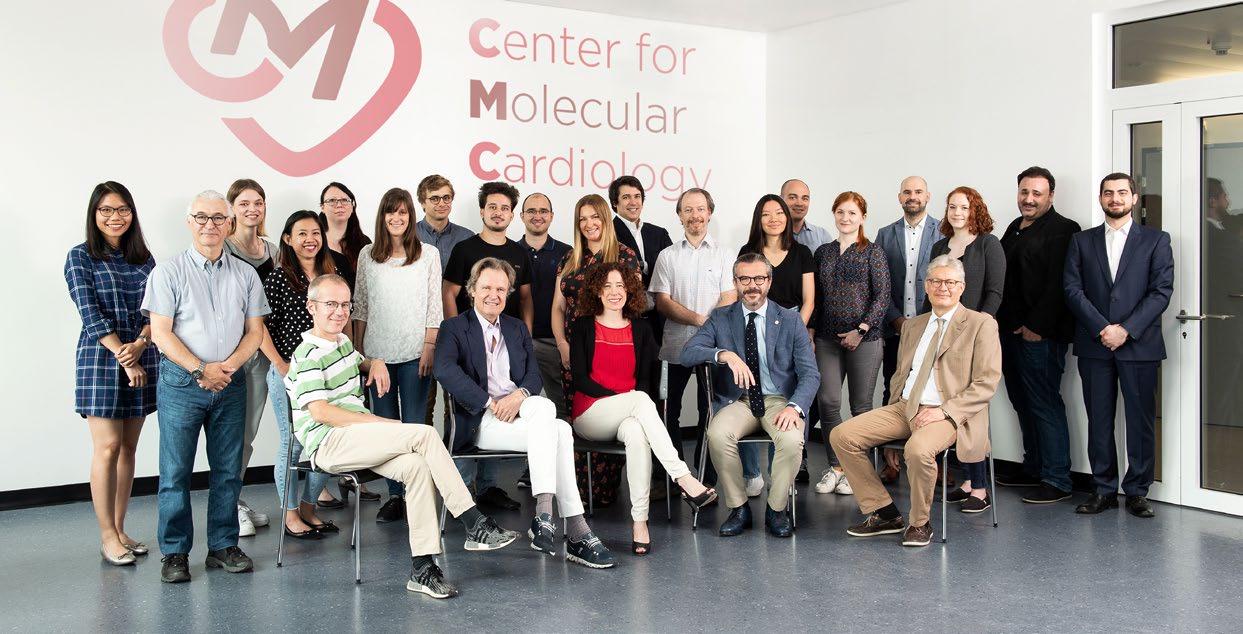
Currently, the CMC, led by Prof. Camici and Prof. Lüscher, stands on a research area of over 600 m² and counts 10 research groups with specific focuses spanning across the wide spectrum of key topics in cardiovascular research. Owing to the outstanding contribution made by the scientists working at the CMC over the last decades, knowledge of the mechanisms underlying cardiovascular disorders has increased considerably and quality of health care in the field has improved.
We wish you an enjoyable time as you peruse this brochure focusing on cardiovascular research which indeed, is a matter very close to our hearts. We want to take you along this exciting journey describing our activities for the benefit of patients with heart disease.

Prof. Dr. Thomas F. Lüscher
Prof. Dr. Giovanni G. Camici President Zurich Heart House Director Center for Molecular Cardiology
Despite the immense scientific advances made over the last decades, cardiovascular disease (CVD) remains the principal single cause of death worldwide. Furthermore, aging represents a key risk factor for the development of CVD; thus, with the increasing life expectancy observed globally, its incidence is expected to rise even further. In light of the above, improving our understanding of CVD and how it develops remains a crucial goal to develop new medications and treatment methods to improve patient’s care.
The central concept underlying the research activities carried out at the Center for Molecular Cardiology, stems from the notion that blood vessels represent a key link between our organism and the surrounding environment. Indeed, dysfunction of blood vessels irrigating all vital organs is a crucial early step in the development of CVD. In line with the above, CVD is usually referred to as a number of conditions where the wall of blood vessels thickens as the result of an accumulation of fatty materials. This condition is known as atherosclerosis and its lethal complications include stroke and heart attack. Research activities at the CMC are aimed at understanding how environmental and hereditary factors cause dysfunction of blood vessels and eventually CVD.
To this end, experimental models are used to mimic clinical scenarios such as atherosclerosis, heart attack, stroke, etc.; in these settings, molecular mechanisms underlying the disease are investigated at different translational levels including experiments on cells as well as specimens from patients. The goal of the research is then to identify molecular mediators to be assessed as novel therapeutic targets for the treatment of different conditions. State of the art techniques such as single cell analysis, high throughput transcriptomics and proteomics are routinely applied; furthermore, to increase the translational perspectives of the data obtained several routine clinical examinations such as electrocardiogram, echo, etc., are performed using hightech laboratory equipment. Beside the identification of novel potential therapeutic target, the expertise of the CMC is also instrumental for better characterising the properties of existing medications. Indeed, the CMC has often assisted leading pharmaceutical industries in assessing unexplored sideeffects and/or discovering novel indications for different diseases for marketed medicaments. Some notable examples include statins, platelet inhibitors, anticoagulants and nonsteroidal antiinflammatory drugs.

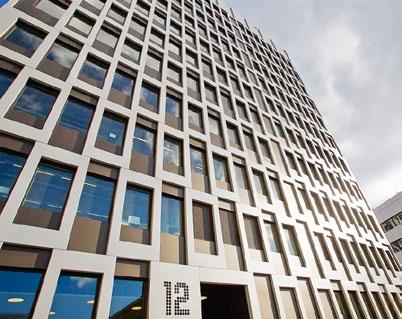
2
2
2 2 2

51 companies at the Bio-Technopark Schlieren
A vibrant Biotech hub providing multiple opportunities for academic research and collaborations.
Vascular aging/stroke

Prof. Giovanni G. Camici
Platelet biology

Prof. Jürg Hans Beer
Atherosclerosis

Prof. Christian M. Matter
CV epigenetics

Prof. Francesco Paneni
Myocarditis

Prof. Urs Eriksson
CV gender medicine

Prof. Cathérine Gebhard
PROF
Aortic stenosis

Prof. Felix C. Tanner

Protein misfolding (new group joining in 2020)

Dr. Marco Luciani
Prof. Giuseppe Vassalli
Extracellular vesicles AMB
Endothelial dysfunction

Prof. Thomas F. Lüscher
Research is just half the story: “Only what is published exists”. The results of several years of research by the Center for Molecular Cardiology in collaboration with institutions from around the world, are being published in scientific journals that report new discoveries.
One of the most important organs of publication in the field of cardiovascular medicine is the “European Heart Journal”, the official scientific medium of the European Society of Cardiology and the most renowned scientific journal in the world for cardiovascular research. Due to the extensive and essential research contributions, the European Heart Journal’s achievements have been impressive: manuscript submissions increased by 15 % (now about 3’600) out of which only the best papers are accepted for publication (around 300 manuscripts each year). This has led to a massive rise in the impact factor (the current quality standard for scientific journals) in the past years: from 8.9 in the year 2008 to 24’899 in 2019. More than 5’000 institutions throughout the world subscribe to the European Heart Journal and articles are downloaded from the platform over 10’000’000 times a year.
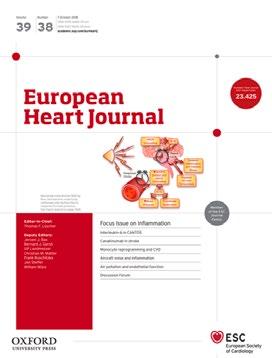
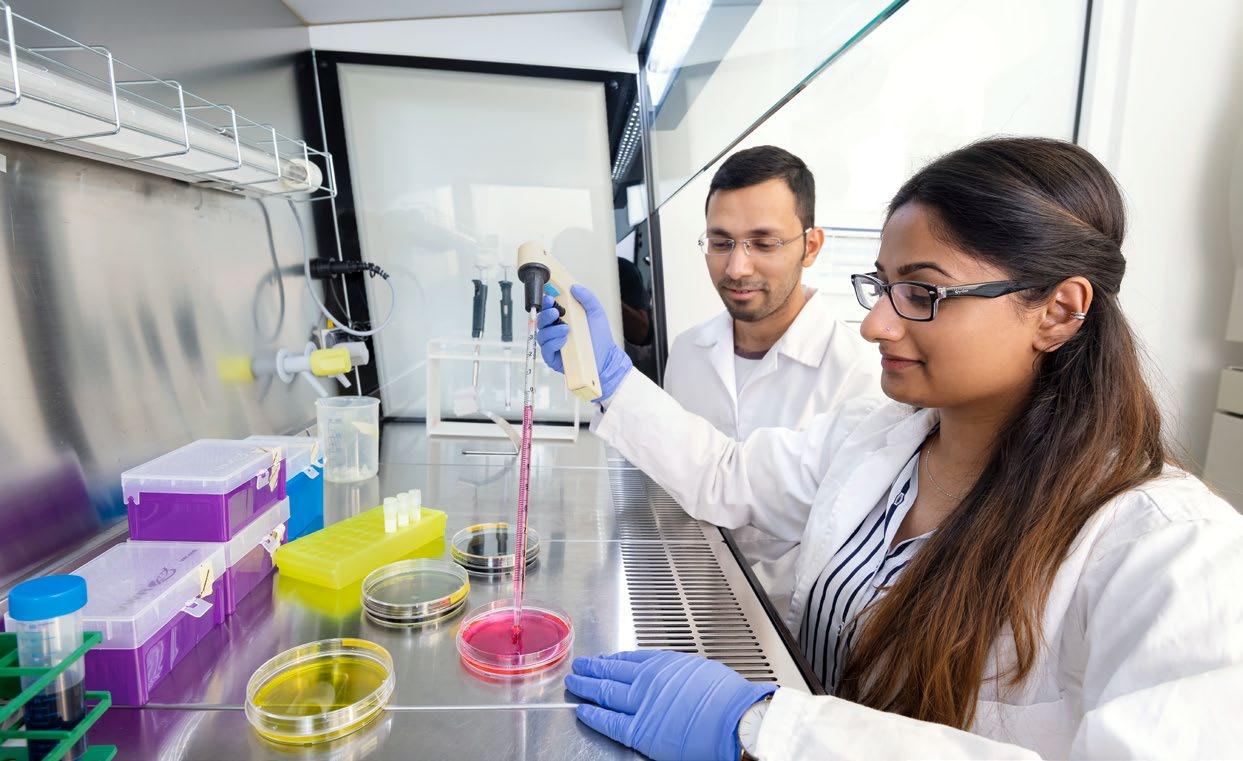
INTERVIEW WITH PROF. GIOVANNI G. CAMICI
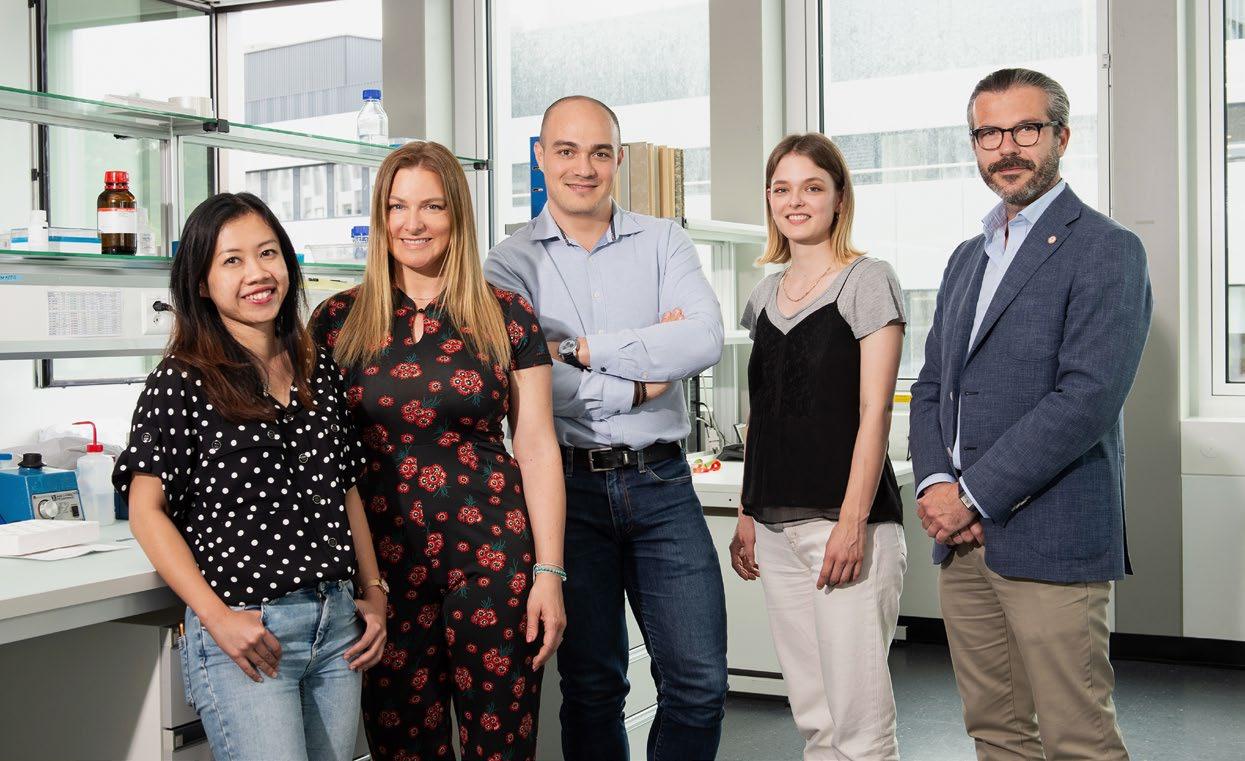
You are a native of Italy and graduated in Biology in the UK. Why did you choose to stay in Zurich?
I left Italy and moved to England at the age of 13. After living for 12 years in the UK, my original plan was to return to Italy however while looking for a research institution where I could continue my education, I came across the cardiovascular research center led by Thomas F. Lüscher at the University of Zurich. After visiting Zurich for an interview and meeting Prof Lüscher in person, it was a rather straight forward decision for me; thus, end of 2001 I moved to Zürich. Since then, with the exception of a few years spent travelling back and forth to Fribourg, where I did my PhD, the thought of leaving Zurich never occurred to me.
What is your passion and commitment about academic biomedical research? The passion for science must be running through the DNA of my family; indeed, from my father’s side 3 generations before him have all been physicians or scientists. I was exposed to cardiology and cardiovascular research ever since I was very young; thus, after graduating in Biology I was quite sure about what I wanted to do in my life. Initially I also liked neuroscience very much but after coming to Switzerland and obtaining my PhD in cardiovascular Physiology I reverted to my initial passion.
How do you select good research fellows?
Are there any preferences for countries of origin or regions in the world?
This is a challenging and unpredictable task! Personally, I have worked with fellows from all over the world and what I found is that their own passion and determination is the only real predictor of success. We receive hundreds of unsolicited applications every year and what I usually focus on is the cover letter. Those that are short, clear and well structured are usually a good indicator; on the other hand, cover letters that are lengthy and appear as a copy paste work, I tendentially skip.
Do you have an example for a successful translational research project?
Despite of the translational nature of our research, having the opportunity to see a preclinical project turning into clinical practice within a short time is fairly rare. Having said that, some of our projects assessing the pleiotropic effects of different drugs e.g. statins, COXinhibitors and drugs eluted from coronary stents, have certainly contributed to the tailored use of some drugs with respect to alternative options within the same class.
Do you care about sustainability of your research projects?
Absolutely yes, especially in the context of animal experimentation.
Tell us about the most exciting moment or project in your academic career. One of my best memories must be when I won the national prize for cardiovascular biology back in 2007. Next in line is probably my first presentation at the congress of the European Society of Cardiology.
What are your expectations for your research unit in the future?
What will be important for our center is to remain at the forefront of cardiovascular research by performing topnotch timely science and collaborating with the best institutions worldwide. This is a challenging task since biomedical research is becoming more and more regulated with an incredible amount of effort needed in order to raise sufficient funds and comply with strict regulations. Given our long standing tradition and the talent of our team members, I expect that we will continue influencing the future of cardiovascular medicine for many years to come.
INTERVIEW WITH PROF. THOMAS F. LÜSCHER
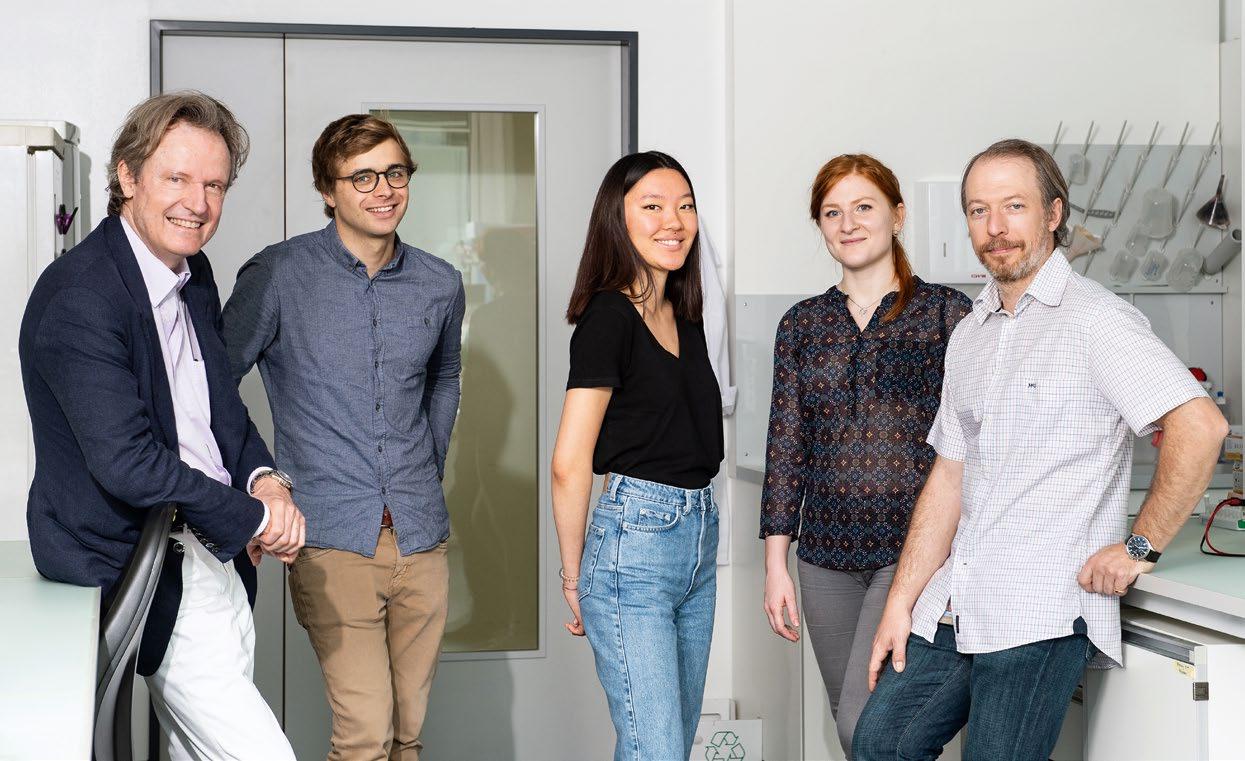
What was the attraction to combine two successful careers, as a clinician in interventional cardiology and as a passionate scientist?
To be active in a field which combines manual and intellectual challenges appeared highly attractive to me. Cardiology wants to understand and treat the most important diseases of mankind – i.e. those involving the heart and the circulation such as high blood pressure and heart attacks among others – with advice to prevent it with medication, but also procedures to treat it. Furthermore, imaging and at that time the evolving catheter techniques started to provide direct access to the heart to understand its function and treat its problems such as cardiac chest pain and infarction.
Are there persons that inspired you for biomedical research?
Role models are crucial at the beginning of any career; to see what can be achieved. Paul M. Vanhoutte, at the Mayo Clinic in the 1980ties, was such a role model, inspiring, restless, full of ideas and after an important question: How do blood vessels work in health and disease? This was so fundamental a question and so close to heart disease that I followed his example.
As a clinician, Bernard Meier newly elected chairman of cardiology in Bern in the 1990ties, was another role model, a pioneer in interventional cardiology with amazing skills and a resilient mind even in the most difficult situations.
What is the focus of your research projects and how did it develop over time?
The focus has remained the same over three decades: How do blood vessel that nourish all vital organs such as the heart kidney and brain work, and how do they change in function and structure not any disease, but in the disease of mankind today, i.e. heart attacks and stroke. We learned that the inner lining of the blood vessels, the endothelium, is crucial in providing protection against clot formation and vascular occlusion. If it fails, it allows for the development of vascular disease, initially subtle plaques, later narrow the blood vessel and foster clot formation, eventually leading to heart attacks and stroke.
Over the years, we shifted our efforts from understanding how damage occurs to the question why some individuals against all odds do not get heart attacks and stroke. Resilience is the other side of the medal and currently our main research topic. We do hope it will provide not only further insights, but novel remedies for heart disease and stroke.
How do you get the financial support for your research projects?
What is the contribution of the University of Zurich?
Research is costly and the costs have increased enormously over the years with novel technologies and techniques becoming available. We need the best and most talented young physicians and researchers and we require the most effective tools –and both require substantial financial resources.
The University of Zurich provides the basic resources such as housing, rooms and some equipment – the rest, and this is substantial, requires support by foundations, industry collaborations and private donations. The latter was and remains essential as it provides the means to pursue longterm innovative projects that are not yet of interest for institutions or industry. Innovation requires great minds, dedicated researchers and time; the latter is provided by generous donations that do not require tight deadlines and immediate reporting but allow to pursue projects over prolonged periods of time to achieve the apparent unachievable.
Tell us about a highlight during your career in academic research.
A highlight in my personal research was the discovery that a fine surface of the blood vessels, i.e. endothelial cells covering the inner surface of the entire circulation, was highly important not only in experimental animals but in humans, was altered in those with disease and could be restored with certain dietary and medical interventions. I realized that what had started as an interest of a few in the 1980ties was a major factor in heart disease and beyond and worth to be pursued further.
What are the future trends in biomedical research?
Over the last decades, biomedical research continuously increased the complexity of the regulation of genes, epigenetic changes, cells, blood vessels, vital organs and the body at large. The number of pathways and molecules involved is increasingly difficult to comprehend for a single human brain. Thus, increasingly we will use artificial intelligence to put together the pieces of the puzzle we contribute. Human brains and artificial intelligence will work synergistically towards a better understanding of the growing complexity towards true personalized medicine for patients.

36/10
36 SCIENTISTS FROM 10 DIFFERENT COUNTRIES
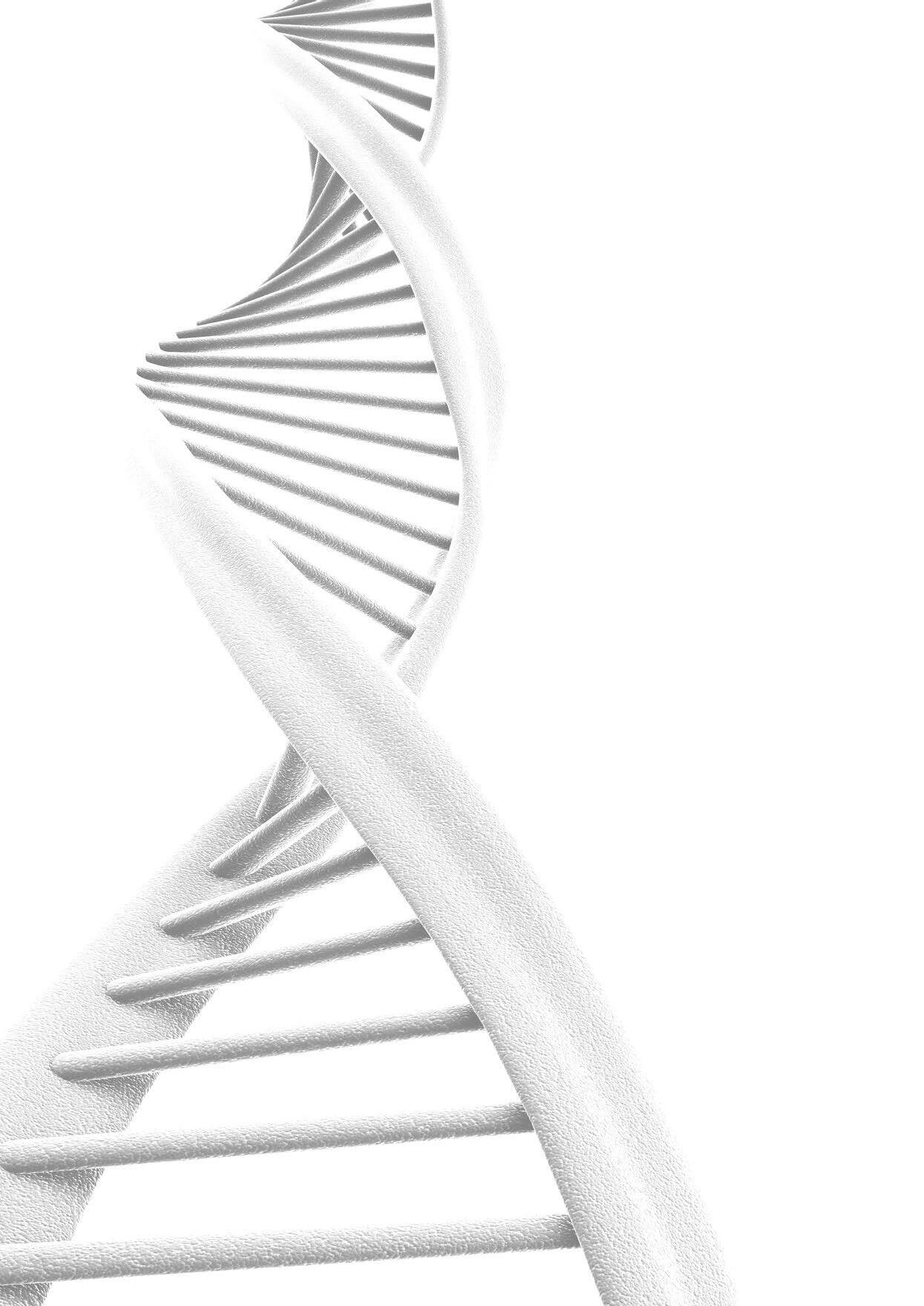
91207 CITATIONS IN RENOMATED JOURNALS
43 NATIONAL AND INTERNATIONAL RESEARCH AWARDS
600 m² STATE OF THE ART RESEARCH FACILITY
10 MILLION DOWNLOADS FROM EHJ PLATFORM
10 MAIN RESEARCH TOPICS
Research Prize
Swiss Society of Hypertension
Zhihong Yang
Research Prize
Swiss Heart Foundation
Philipp Kaufmann
AWARDS OF RESEARCHERS
Cardiovascular Biology Prize
Swiss Society of Cardiology
Giovanni Camici
Andreas Grüntzig Lecture on Interventional Cardiology and Silber Medal
Annual Meeting of the
European Society of Cardiology
Thomas F. Lüscher
Cardiovascular Biology Prize
Swiss Society of Cardiology
David Kurz
Scientific Prize
Italian Society of Cardiology
Francesco Cosentino
Pfizer Award
Cardiovascular Research
Jürg Schwitter
Björn Folkow Award
European Society of Hypertension
Thomas F. Lüscher
Research Prize
Swiss Society of Hypertension
Frank Ruschitzka
Cardiovascular Biology Prize
Swiss Society of Cardiology
Frank Ruschitzka
Ake Senning Award
Firat Duru
Theodor-Nägeli Award for Thrombosis Research
Masato Eto and Thomas F. Lüscher
Götz-Prize
University of Zurich
Frank Ruschitzka
Cardiovascular Biology Prize
Swiss Society of Cardiology
Roberto Corti
The Khwarizmi
International Award
Islamic Republic of Iran
Thomas F. Lüscher
Young Investigator Award in Basic Science
European Society of Cardiology
Sarah Costantino
Research Prize
Swiss Society of Cardiology
Elena Osto
Walter and Gertrud Siegenthaler
Research Grant
Medical Faculty of the University of Zurich
Ardan Saguner
Götz-Prize
Medical Faculty of the University of Zurich
Jelena TemplinGhadri and Christian Templin
Research Prize
Olten Heart Foundation
Jelena Gahdri and Christian Templin
Mayo Distinguished Alumni Award
Mayo Clinic, Rochester, Mn., USA
Thomas F. Lüscher
Research Prize
Swiss Heart Foundation
Andreas Flammer
Research Prize
Walter and Gertrud Siegenthaler Foundation
Jelena TemplinGhadri
Prix de la Fondation
Coeur de la Tour
Jelena TemplinGhadri
Paul-Morawitz-Preis
German Society of Cardiology
Thomas F. Lüscher
Research Prize
Swiss Society of Cardiology
Jelena TemplinGhadri and Christian Templin
SWISS Lipid Award
Elena Osto
Best Research Presentation
European Heart Rhythm Association
Deniz Akdis
Young Investigator Award
European Society of Cardiology
Tasneem Arsiwala
Best Free Communication AGLA
Update Meeting
Nicole Bonetti
Young Investigator Award in Basic Science
European Society of Cardiology
Sarah Costantino
Kenneth Brown Award for Best Editorial
American Society of Nuclear Cardiology
Cathérine Gebhard
Young Investigator Award for Thrombosis Research
European Society of Cardiology
Luca Liberale
De Barjac Prize
F4LABMED Foundation for laboratory medicine,
Swiss Society of Clinical Chemistry
Luca Liberale
Research Prize
Day of Clinical Research, University and University Hospital Zurich
Luca Liberale
Andreas Grüntzig Award
Swiss Society of Cardiology
Thomas F. Lüscher
Paul Dudley White International
Scholar Award
American Heart Association
Sarah Costantino, Shafeeq A. Mohammed, Alexander Akhmedov, Thomas F. Lüscher, Francesco Paneni
Amgen Research Prize
Swiss Society of Cardiology
Sarah Costantino
Gold Medal
Serbian Society of Heart Failure
Thomas F. Lüscher
Medal
Jagiellonian University Krakow
Thomas F. Lüscher
Werner Forssmann Award
Charité Berlin
Thomas F. Lüscher

PD Dr. Lukas Altwegg Chefarzt Kardiologie, St. Claraspital, Basel

Prof. Dr. Peter Meyer Leitender Arzt Ophthalmopathologie und Augenklinik, Universitätsspital Basel

Dr. Marco Roffi Leiter Herzkatheterlabor Kardiologie, HUG Genève

Prof. Dr. Jürg Schwitter Leiter Cardiac MRI, Centre Hospitalier Universitaire de Lausanne

Ehem. PD Dr. Edward Wight Chefarzt Gynäkologie, Frauenklinik, Universitätsspital Basel

PD Dr. Laurent Haegeli Chefarzt Kardiologie, Kantonsspital Aarau

Prof. Dr. Hans Rickli Chefarzt Kardiologie, Kantonsspital St. Gallen

PD Dr. Jens Hellermann Chefarzt Innere Medizin, Spital Schiers

Prof. Dr. Zhihong Yang Institut für Physiologie, Universität Fribourg

PD Dr. Richard Kobza Chefarzt Kardiologie, Luzerner Kantonsspital

Prof. Dr. Giovanni Pedrazzini Leiter Herzkatheterlabors, Cardiocentro Lugano



Dr. Erwin Oechslin Department of Medicine, University of Toronto (CAN)

Dr. Livius d’Uscio, PharmD Anesthesiology, Mayo Clinic, Rochester


ALUMNI OF THE FOUNDATION IN EXECUTIVE POSITIONS AT INSTITUTIONS IN SWITZERLAND AND THROUGHOUT THE WORLD














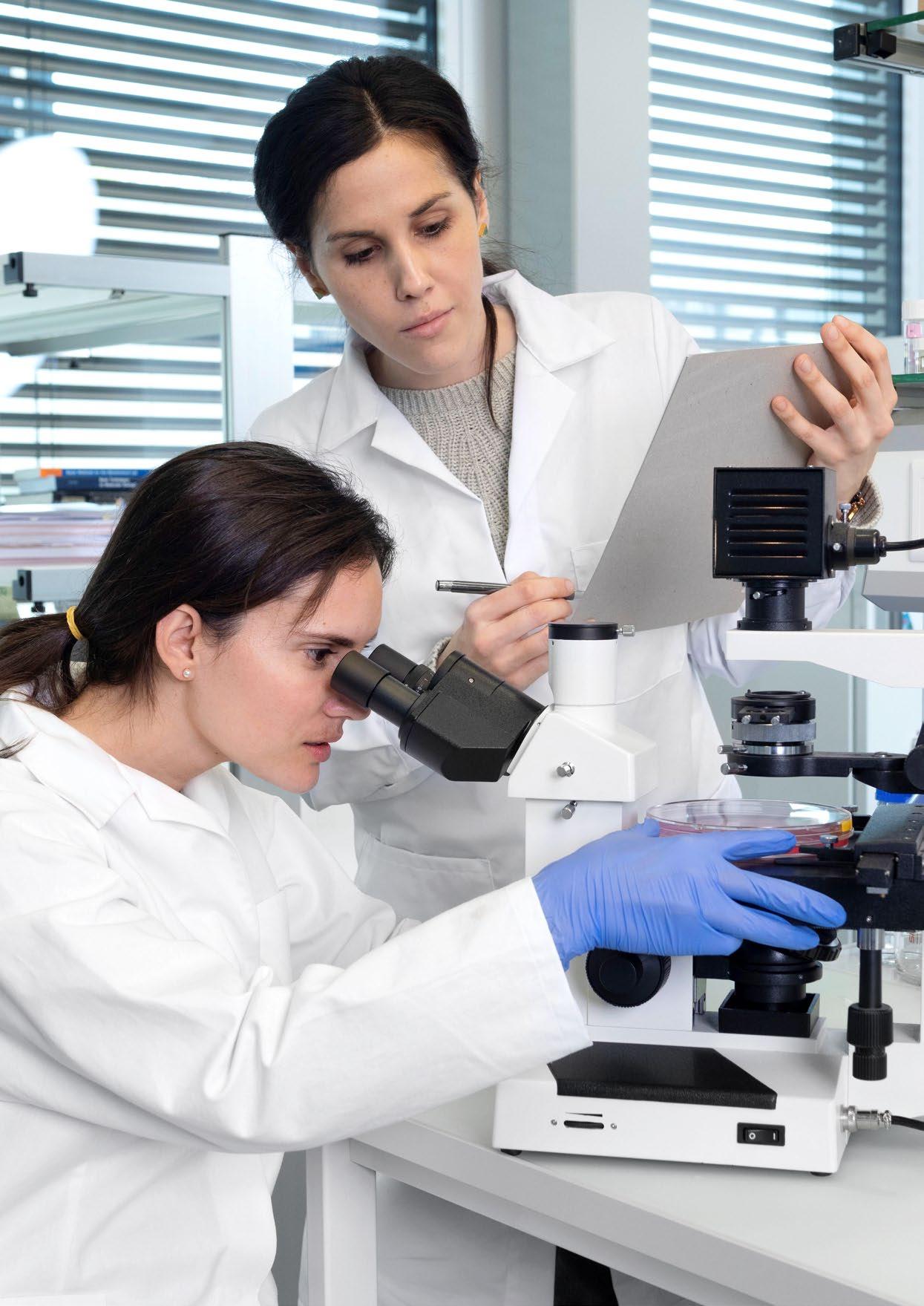
The Foundation is interested in establishing longterm relationships with its benefactors, donors and sponsors. Our cardiac research and training activities can be supported in many ways. The options are listed in the following.
An unrestriced donation is – in our view – the most generous way of supporting our research activities. Important projects and core themes can be addressed and expedited rapidly with a donation to our research fund. We thus have the opportunity to invest additional financial resources efficiently in a strategically important research sector.
EARMARKED DONATIONS
Supporting a professorship
A professorship is usually supported for a period of six years with a total sum of CHF 1.5 million. If the donor wishes, the professorship can be given a specific name.
Supporting a research project
A variety of research projects need financial support; the funds may be allocated to a part of a project or an entire project (see current research projects).
Supporting a research fellow
A scientist can be supported with CHF 100’000 per year. The research field can be chosen; for example, atherosclerosis, risk factors, aging research, stem cell research, myocardial infarction, or heart failure.
Supporting a PhD student
A doctoral candidate can be supported with CHF 55’000 per year. The time period for completion of the doctoral thesis is three years.
Training scholarships
Training scholarships are awarded to medical graduates or research fellows (< 36 years of age) in order to undergo specialist training in basic or clinical research. Duration: 6 to 12 months. Cost of training: CHF 30’000 to CHF 60’000.
We will be glad to address your personal wishes and discuss the various support options with you. Your contacts are:
Prof. Dr. Thomas F. Lüscher
T +41 (0)44 250 40 97 Thomas.luescher@zhh.ch
Prof. Dr. Giovanni Camici
T +41 (0)44 635 64 68 giovanni.camici@uzh.ch
Dr. Ruth Amstein
T +41 (0)44 250 40 87 ruth.amstein@zhh.ch
Werner Schär
T +41 (0)44 250 40 82 werner.schaer@zhh.ch
ZURICH HEART HOUSE
Foundation for Cardiovascular Research
Hottingerstrasse 14
CH8032 Zurich
Switzerland
T +41 (0)44 250 40 80
F +41 (0)44 250 40 90 contact@zhh.ch www.zhh.ch
University of Zurich Center for Molecular Cardiology
In 2014, the laboratory of cardiovascular research became an independent research center of the University of Zurich named “Center for Molecular Cardiology” (CMC) and is closely associated with the University Heart Center Zurich. The CMC was established at the recently built University of Zurich’s campus in Schlieren and during this phase, Prof. Giovanni G. Camici took over the directorship of the Center with Prof. Thomas F. Lüscher as Chairman.
The Center is composed of several research groups each focusing on different aspects of translational research in cardiovascular physiology and pathophysiology. Here the CMC quickly established itself as a “state of the art” research facility with modern equipment for molecular, cellular as well as cardiovascular translational research.
Zurich Heart House Foundation for Cardiovascular Research
The CMC owes its outstanding achievements in cardiovascular research to the continuous support of the Foundation for Cardiovascular Research/ Zurich Heart House.
The Foundation for Cardiovascular Research is a nonforprofit organisation and a leading center for cardiovascular disease in Europe. The aim of the Foundation is to conduct and support research from bench to bedside and to help disseminate current knowledge on heart disease to doctors and patients.
The Education Center of ZHH is a leading provider of medical education attracting cardiologists and health care professionals worldwide to attend its symposia, courses and postgraduate programmes. The center makes an essential contribution to the widespread distribution and communication of new strategies for the prevention, diagnosis and treatment of cardiovascular disease.
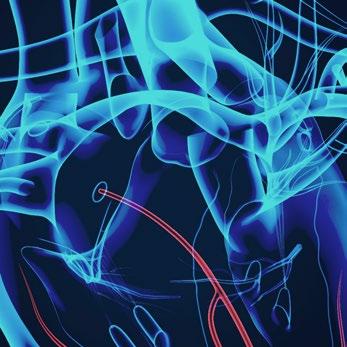
University of Zurich Center for Molecular Cardiology
Wagistrasse 12
CH8952 Schlieren
Switzerland www.cmc.uzh.ch
Zurich Heart House Foundation for Cardiovascular Research
Hottingerstrasse 14
CH8032 Zürich
Switzerland www.zhh.ch